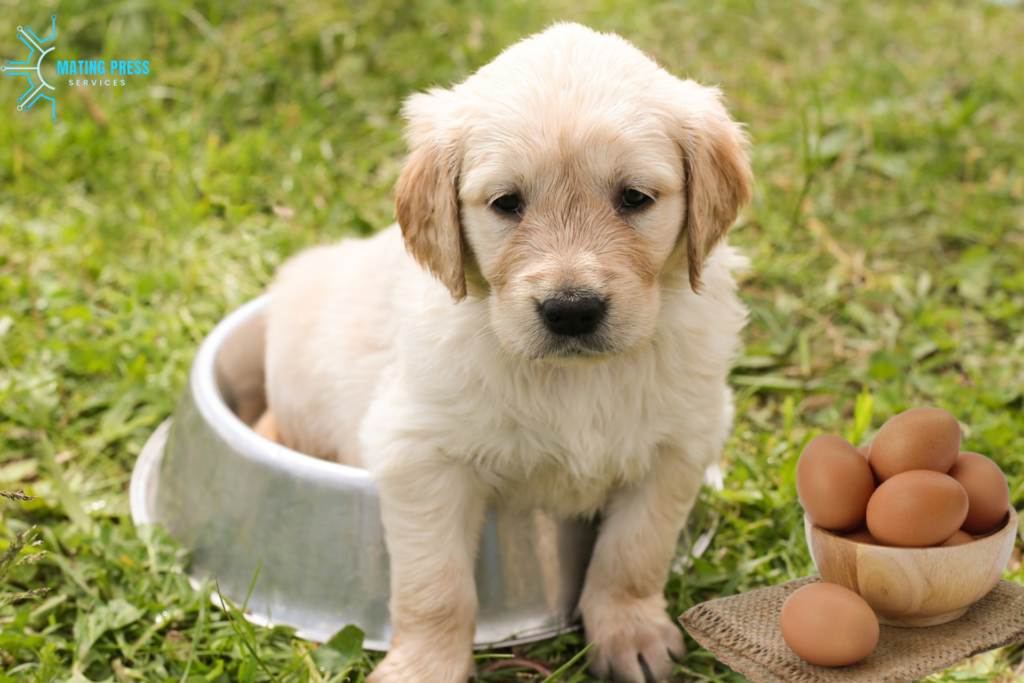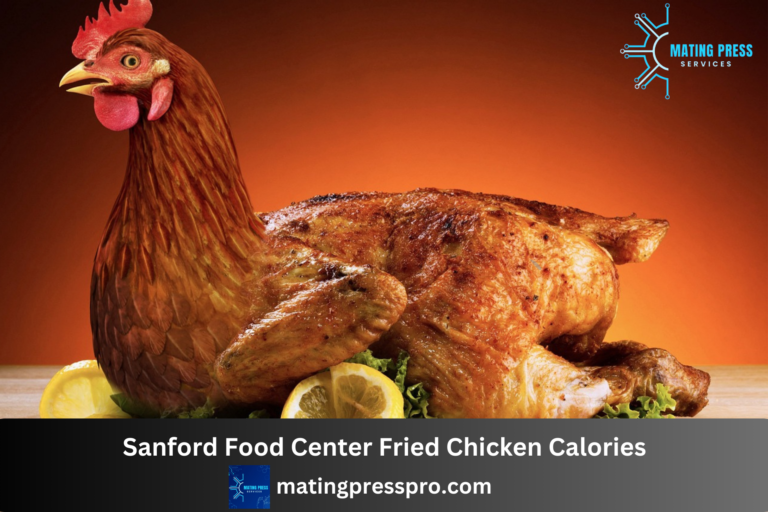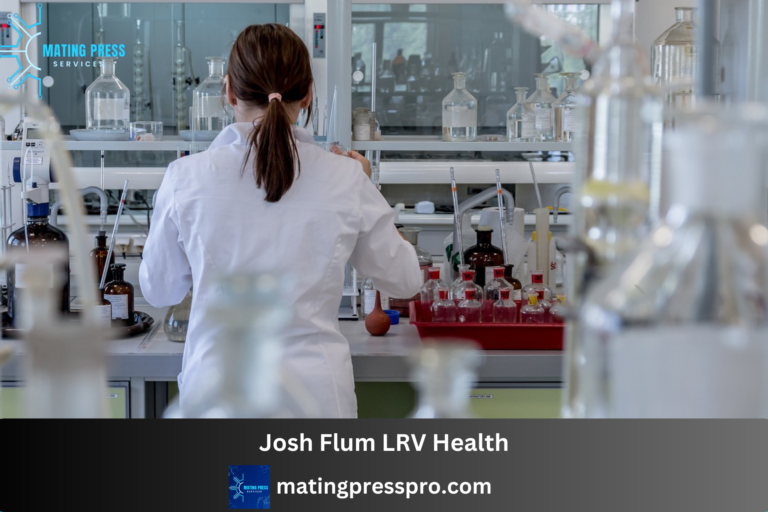Cracked Raw Egg Over Dog Food: A Complete Guide to Benefits and Risks

For numerous pet owners, the health and well-being of their dogs is of paramount importance. We do not keep calm but are in search of how to better their diet and nutrition. One practice that has become more popular is that of adding a cracked raw egg over dog food. This trend has prompted discussions with dog owners and veterinarians putting questions with respect to the potential benefits and risks associated with it. In this detailed article, we will discuss the nutritional value of raw eggs, the health benefits they can bestow upon your dog, potential dangers that they may present and how best to integrate them into your dog’s diet and feeding practices.
Examining the Nutritional Value of Raw Eggs
Despite the focus on the benefits and the downsides of raw eggs, it is important to point out that many people feel that including raw eggs in a dog’s meals has several advantages. Such views are common because of the nutrient density of eggs which are usually called as a “laws of Nutritionees”. Which individual of the sport be it archery or fencing right. Al lets analyze the nutrients present in a raw egg:
- Proteins: The nutrient that is very well represented in this Dog Food is the Proteins and Egg Protein is a source of high biological value. Each egg has around 6 grams of protein, an important nutrient in the building and repair of muscles and growth of dogs. The protein is made up of amino acids that form the units of the tissues and are also needed in the making of enzymes, hormones, and other body components.
- Fats: Eggs are an abundant source of healthy omegas —3 and 6 fatty acids complex nutrients including the fats. These nutrients are especially important for the treatment of skin and coat, the support of brain growth and development as well as fighting internal swollenness.
- Vitamins: Among others, eggs are a good source of vitamin A also critical for the eyes, vitamin D for bones, vitamin E for anti-oxidation, and B-complex vitamins namely B2 B12 and folate for energy metabolism and prevention of nerve complications.
- Minerals: Eggs are also a source of important minerals like iron which is essential for the formation of red blood cells, selenium which boosts the autoimmune system and zinc which is essential for the skin and coat.
- Choline: This is a lesser known yet necessary nutrient available in eggs. Choline is important for the liver and functioning of muscles along with helping in the development of the brain. This nutrient is especially required by nursing and pregnant dogs and also in puppies.
Benefits of Adding Cracked Raw Eggs to Your Dog Food
1. Increases Protein for Muscle Development and Repair
Dogs, especially those who are active or working dogs, need a protein rich diet to help them build and repair muscles. Normally, the Dog Food may be added with a raw egg to boost the amount of protein that is taken in, which is the 10 pieces of Dog Food per meal. The protein present in the eggs is of high biological value, meaning that it carries all the essential amino acids to the dog in the ideal ratio. This therefore serves as a complete protein source to the body, thus encouraging strong muscle formation and aiding in the healing of injured tissues.
2. Enhancement of Skin and Coat Characteristics
The saturated fats such as the omega-3 and omega-6 fatty acids available in raw eggs are not only nutritionally dense but good for the skin and coat of a dog as well. Such fatty acids help to reduce skin inflammation, which leads to itching and dry skin, as well as promote a healthy shiny coat. When fed on these types of fats, these skin problems can be improved and the texture and appearance of your dog’s coat looks pleasing and healthy as well.
3. Enhances Brain Function and Growth
Choline is a diet component which is found in significant levels in eggs and is regarded as pivotal for brain development and cognitive functioning. In the case of puppies, choline facilitates brain development and retention of information whereas in older dogs, it ensures that the cognitive functions are as optimal as possible and is capable of delaying cognitive dysfunction in aging pets. This nutrient is equally important for the peripheral nervous system and plays a critical role in communication between the brain and muscles.
4. Immune System Function Gets a Lift
Eggs provide the essential vitamins and minerals required in the building of a healthy immune system. Among the nutrients, Vitamin A and selenium are key to imunno-issues. Vitamin A promotes the health of the mucous membranes, the cells since they act as barriers and protect the body against disease-causing microorganisms while selenium helps in inflammation and in harnessing the body’s antioxidative response.
5. Encourages Bone Development and Well Being
Vitamin D, contained in the egg yolk, is decisive for the absorption of calcium and the maintenance proper bone structure. It aids the dogs’ growth in strong teeth and bones. This is especially significant for growing pups, elderly dogs, as well as dog breeds which have a high likelihood of having bone problems such as large ones or those that are likely to suffer from arthritis or hip dysplasia.
6. Keeps an Excellent Digestion
Eggs are easy to digest and such will facilitate the proper digestion of the dogs. The composition of the eggs present in the organism has a very high bioavailability, so they are easily utilized. This may be particularly useful for dogs who have dietary intolerance or who have just recovered from gastrointestinal diseases.
Risks of Feeding Dogs Raw Eggs: The One Aspect That Might Be Useful to Chronic Health of the Animal

Although there are many merits of giving a dog a raw egg, it is necessary to look at the possible risks that are involved in doing so. Knowing this risks will make sure you would be able to take necessary precautions or avoid more of them in any given situation.
1. Salmonella Infection
The potential for salmonella contamination is the greatest danger of feeding raw eggs to dogs. Eating raw eggs exposes dogs to salmonella germs that cause vomiting, diarrhea, abdominal pain and other forms of intestinal trouble. In fact, some dogs even experience complications such as spread of the infection outside the intestines to other organs. This is common in dogs whose immune systems are compromised, young puppies and older dogs.
2. Deficiency of Biotin due to Egg White Ingestion
There is a protein in raw egg whites known as avidin, which suppresses the utilization of another protein which is referred as ‘biotin’ or vitamin B7. Biotin contributes greatly to the skin health, coat and its metabolic activity. Biotin deficiency, if prolonged, may affect the dog by causing hair loss, skin irritation and poor skin coating. However, it is significant that the yolk of the egg has very high concentration of Biotin, thus averting this impact. It can be said therefore that biotin deficiency will be in a normal case scenario be rare and occur only when raw egg whites are abused in terms of quantity over a period of time.
3. Allergic Reactions
Just as humans do, dogs are also known to have allergic reactions to some Dog Food products, especially eggs. Some of the allergic reactions could be mild, while others could be severe and they include itching, swelling, hives, gatecrashing of gastrointestinal tract and respiratory distress, which can be very dangerous. When you are trying out eggs for your dog for the first time it is crucial to observe the pet for any developing allergies.
4. Risk of Gastrointestinal Disturbance
It is common for some dogs to face gastrointestinal disturbance while for the first time taking new Dog Food such as raw eggs. This is manifest in form of vomiting, diarrhea, or even discomfort. New Dog Food items should be added to the diet in what is called the step wise manner in order to assess the pet’s tolerability and also the ability of the gastrointestinal tract to cope with the foreign material.
5. Potential Sicknesses Caused by Ingesting Contaminated Dog Food
Salmonella is not the sole pathogenic organism because there are other diseases and pathogens present in the raw egg: E-coli. Although the stomach of dogs is much more acidic where most germs are killed it does not mean that there is no risk especially in immune-compromised dogs.
How to Safely Feed Your Dog Raw Egg.
If you believe that the advantages of using a raw egg in your dog’s nutrition surpass the disadvantages, you should proceed with caution. Below are some suggestions that may help reduce the extent of any possible risks:
1. Use only high quality eggs
Use fresh good quality eggs, preferably organic/free range options. These eggs are Yoshida’s less prone to bacterial infection and more nutriocius. Organic eggs come from chickens that are not fed antibiotics and thus there is less risk of any disease being passed to the dog.
2. Start slowly and keep an eye on your dog
If it is the first time you are giving your dog raw eggs, be sure to recommend a small dosage. Pour a small quantity of the egg into your dog’s regular Dog Food and mix it well. Watch out for any symptoms of an upset stomach or an allergy in your dog. If your dog has no problem with the egg, try feeding it a bit more.
3. Use Pasteurized Eggs Instead
If you are worried about salmonella or another pathogen, you may like to use pasteurized eggs. Pasteurization is a method where eggs are heated to a certain degree to destroy bacteria without cooking the egg. Egg nutritional characteristics are preserved in pasteurized eggs but are safer than eating the raw ones.
4. Include Other Protein Types These For A While
To avoid the risk of a biotin-deficient problem, it will be wise to rotate raw eggs with other premiumquality proteins such as lean meat, fish, or even cooked eggs. This helps achieve an overall healthy diet for the dog where it can obtain various nutrients from various Dog Food.
5. Follow Basic Hygiene Measures
Do not forget to wash your hands properly after handling raw eggs always due to the possible transfer of bacteria. Remove any surfaces, utensils or dog bowls that are in contact with raw eggs to avoid contamination. This is vital especially if there are other pets or children in the house who can get in contact with the bacteria.
6. Have a Word with the Veterinarian
Diet in a dog is a sensitive issue and therefore it is important to meet with a veterinary specialist before adjusting anything. They can provide guidance based on your dog’s specific health needs and dietary requirements. On the same note, a veterinarian can be helpful in promoting healthy and safe feeding habits and strategies and also provide other options if there are fears associated with the feeding of raw eggs.
Alternatives to Raw Eggs for Dog Food

For those who are not very keen on the thought of offering raw eggs to their dogs or for those whose dogs have been noted to have allergies or sensitization to them, here are a few substitutes which can equally satisfy nutrition-wise:
1. Cooked Eggs
Most importantly, when eggs are cooked, it prevents any possibility of salmonella and disarms the avidin present in the egg white that interferes with biotin absorption. Boiled, scrambled or poached eggs are good choices for dogs as they are safe and nutritious. Additionally, eggs are also more palatable for dogs with sensitive stomachs since they are fully cooked.
2. Powdered Egg Supplements
Egg powder supplements that are available on the market are also directed at pet owners. Egg supplements allow for the consumption of concentrated protein and nutrients present in eggs but without the risk of bacterial infection. They are easy to administer and can be given as an additive to your dog’s regular feeding schedule.
3. Protein Sources Among Other Dog Food
There are other protein sources that can be introduced into the feeds such as chicken, turkey, beef, or fish. These meals offer protein of high quality and a range of useful nutrients. There is also the option of providing organ meats such as liver and kidney which are dense in nutrients and highly appetizing to dogs.
4. Cottage Cheese and Other Dairy Products Such As Yogurt
Cottage cheese and yogurt are great sources of protein and calcium. In addition, they also contain healthy bacteria known as probiotics that help in digestion and a healthy gut. Use plain varieties without extra sugar or artificial ingredients because they can be dangerous to dogs.
5. ‘Fruits and Vegetables’
Considering the dog’s organic physiology and nutrients requirement in addition to protein, it would be necessary so as to recommend fruits and vegetables as well. Sister Dog Food which include berries, carrots and spinach also provide vitamins, minerals and antioxidants as well as other health supporting benefits. When it comes to feeding your dog the new vegetables or fruits, be sure to do that slowly with control since some of them may not be good for dogs.
‘How often should your dog eat manual practice concerning raw eggs?’
How often should one give raw eggs to their pet dog depends on the size, age, lifestyle, and health condition of the dog. For most of the breeds on the market, one raw egg outlines adequate provision for the day. But if you have a small dog or a dog who suffers from a health problem, you can limit the quantity even farther. It is preferable to ask for expert assistance in this case in order to know how much and how often you are supposed to give your pet the eggs.
‘Moderation is the answer’
As mentioned earlier, eggs are not a bad thing in a dog’s diet, however they should not be the one and only protein source. These include some proteins, fats, carbohydrates, vitamins& minerals from a variety of dog food which should be of high quality to promote the health of the dog. Egg overfeeding will result in excess provisions of some ingredients which will upset the nutrient balance and create health problems.
Recommendations for Egg Overfeeding Symptoms
Note that overfeeding eggs to your canine may bring about some signs like weight gain, stomach problems or coat changes. If this is the case, please decrease the number of eggs you are providing and seek the guidance of your veterinary doctor.
Feeding Dogs Raw Eggs: Myths and Facts
There are some myths and misconceptions regarding the practice of feeding raw eggs to dogs. Let’s address some of the most common ones:
1. Myth: Dogs Can Get Poisoning from Raw Eggs
Raw eggs may pose some risks, but they cannot be classified as harmful substances. The secret lies in obtaining and managing eggs that are of high quality and only offering them in moderate amounts. Most dogs will be fine eating raw egg as part of an overall balanced diet.
2. Myth: Raw Eggs Can Make Dogs Biotin Deficient
Feeding raw eggs is not enough to cause Biotin deficiency in dogs unless a tremendous excessive quantity of raw egg whites is fed for an extended period. And also, we know the yolk of egg is rich in biotin which actually counters the avidin binding effect found in egg white as mentioned in this.
3. Myth: Raw Eggs Are Not Beneficial for Dogs’ Health
Eggs were proved to be one of the most Dog Food that are highly nutritious, gives a complete protein and is packed with many important vitamins and minerals. This can be good as an additional option for dogs to have in their diet if given moderately.
4. Myth: Any And All Breeds Of Dogs Are Safe To Feed Raw Eggs
Although it is safe for many dogs to eat raw eggs, some may have allergies or hypersensitivity to the ingredient. Therefore, it is essential to feed your dog some eggs in a limited amount and observe your dog for any sick responses. Should your dog fall into the category that has an allergy to egg, then it is wise not to give them raw eggs.
Storing and Handling Raw Eggs For A Dog

It goes without saying that proper storage and handling of raw eggs are necessary in order to reduce the opportunity of the presence of bacteria:
- Eggs Should Be Kept In The Fridge: Regardless of the fact that the eggs are going to be cooked, but they must still be kept in refrigeration all the time in order to prevent bacteria from multiplying. It is necessary to keep them on the original packaging because they tend to absorb the odor of other foods when not covered, since that would prevent them from being damaged.
- Check for Freshness: Every single time the date of the expiry should also be checked and a freshness test carried out last before eggs are put in the mouth of the dog. To perform a freshness test, one shall check the egg in water, which has water in a basin. If it sinks and it sits flat against the water surface, it is a fresh egg. If, however, it rises above the water surface, then that particular egg is bad.
- Cleanliness Is Key: After eggs have been handled, particularly the raw egg washed hands with soap and water must be done. Also all the surfaces as well as the utensils that are in any contact with the raw eggs must be cleaned so as to avoid cross contamination.
FAQs on Feeding Dogs Raw Egg Ingredients
Do dogs benefit from the addition of a raw egg in the diet?
Yes, it is beneficial to coat your dog’s food with a raw egg and therefore dishes containing eggs are good for the dog since they are rich in high-quality protein, healthy fats, vitamins and minerals. These include nutrients essential for muscle growth, quality of skin and fur, proper function of the brain and the body’s immunity. It’s essential to note, though, that the eggs used should be fresh and from a credible source to avoid sources of salmonella. Always make sure to introduce new foods in moderation and discuss with your veterinarian for proper registration of such food with respect to your dog.
Should the dog food include raw eggs?
Yes, dogs can include raw eggs along with their dog food. Raw eggs can be an extra protein source to their standard diet containing protein, vitamins A, D, E, and B and some minerals like iron and selenium. However, there are some risks to consider, such as contamination by pathogens like salmonella, or sorption of biotin-deficient eggs. To address such concerns, make use of pasteurized eggs or do not overdo it with raw egg feeding. Make sure you observe your dog for any adverse reactions when a new diet is introduced.
Do raw eggs help in the improvement of dog’s coat?
Yes, raw eggs can help in enhancing the dog’s coat. Omega 3 and Omega 6 fatty acids from the healthy fats in eggs an oily and healthy coat. Biotin (Vitamin B7) found in eggs contributes to skin and hair health. If applied properly, the nutrition gained from eggs can lessen skin irritation or flakiness, as well as promote a healthy appearing and smooth coat of your dog. When such beneficial foods are incorporated into the diet, it is important that these foods constitute a part of a well-planned diet.
Can a raw egg be useful for my dog’s stomach?
Since raw eggs are also highly nutritious, and easy to digest, they may also assist in calming a dog’s ever active stomach. This is due to the presence of nutrients like protein and amino acids that are rich in eggs that are necessary for digestion but which also do not antagonize a protective stomach. There are cases of some canines who react to raw eggs by developing vomiting or diarrhea, especially when they are first given through this mode of feeding. In case the dog has a sensitive stomach or if there are past gastrointestinal problems, it would be wise to check with the vet first before incorporating any raw egg into the dog’s meals.
What is the minimum age for giving dogs raw eggs?
It is not until puppies are weaned off their mothers and start weaning off meat solids – around the eighth week – when they can utilize raw eggs. Nevertheless, it is important that raw eggs are only tried in small quantities and slowly because they may trigger some adverse reactions like allergies or upset stomach. There is still no way of knowing how and whether all puppies will be able to handle normal eggs since their immune systems are still under something of development. High quality fresh or pasteurized eggs are safer to use to reduce the case of bacteria. Veterinary guidance should be sought before raw eggs are added to a puppy’s regimen.
Why are dogs gentle with raw eggs?
Certain dogs are compassionate with raw eggs. This particular behaviour of dogs may be because of their instinctual behavior. Some say this has something to do with the way that dogs are descended from ancestors that needed to pick up delicate things like eggs with care. It may be the case that eating dogs did not hurt to carry some fragile things such as eggs or small prey. For some, it may be because they were trained that eggs are food and must be tad gently. This can also be learnt behavior where dogs are trained and positively reinforced for treating objects with tenderness.
Conclusion
There are several health benefits associated with feeding your dog a cracked raw egg over dog food including increased intake of nutrients in dog, proper skin and coat of pet and enhancing brain functions. Nonetheless, there are potential dangers that must be recognized, including the risk of salmonella infection, hybiotin deficiency, and food allergy. It is safe to add raw eggs to your dog’s diet as a source of healthy nutrition as long as you take certain measures and get a positive professional outlook from your veterinarian.
For those uncomfortable with the concept of feeding raw eggs, there are numerous equally nutritious but non-egg alternatives available that include cooked eggs, egg powder supplements and high quality proteins from other sources. As a matter of fact, it is important to assess and weigh the advantages and disadvantages of feeding raw eggs to your dog and the particular health care needs of your dog each time.






